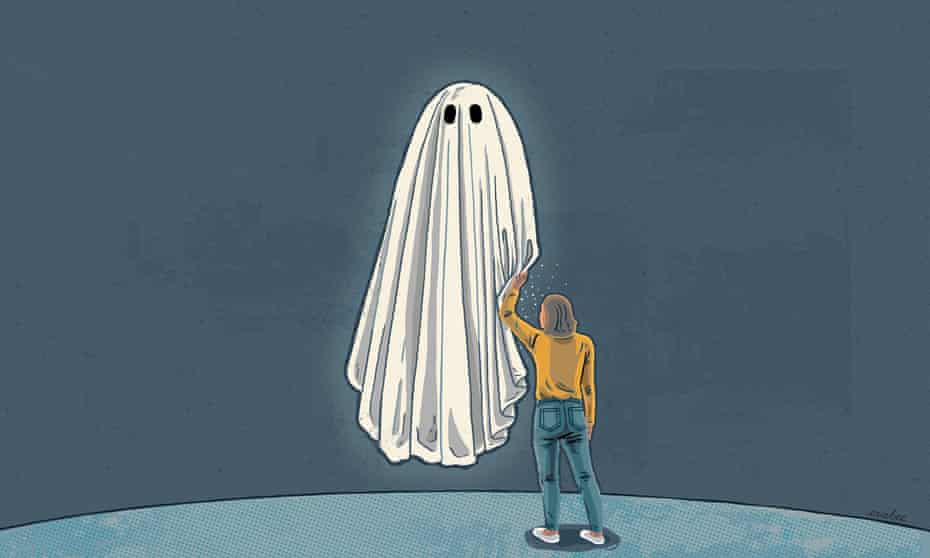Dear Vishi, have you seen a ghost?
Tags: diary letters infrasound

Do you believe in ghosts? I did when I was a kid. I was infatuated with the paranormal. Sometimes I used to wander around desolate buildings with other kids concocting horror stories. I loquaciously gossiped about ghosts in school which earned me a sizeable audience. I was convinced that someday I would stumble upon an innocuous spirit that would instill some unearthly powers in me.
Vic Tandy, a British engineer, was working at Warwick Laboratory when he thought he saw a ghost. He later said, "I was sweating but cold, and the feeling of depression was noticeable – but there was also something else. It was as though something was in the room with me." He then claimed to have seen a spirit emerging in his peripheral vision, but when he turned to face the figure, it vanished". He later went home perplexed.
How you played a fencing match? It's an Olympic sport. Two competitors, each holding a weapon in one hand, face each other to strike their opponent on a valid target area of the body. The weapon is generally a foil blade. When a competitor hits his opponent it's called "touché". This is the origin of the word "touché". We can also use it to say when someone makes a witty remark.

Vic Tandy returned to the research laboratory the next day. He was entering a fencing competition soon so he started working on his fencing foil. He noticed that the foil blade was vibrating even though nothing was touching it. How would you react when you experience something spooky? Our natural instinct is to fear or seek supernatural explanations.
"Extraordinary claims require extraordinary evidence” - Carl Sagan
Vic Tardy began investigation for a rational explanation of this spookiness. He found that the newly installed extractor fan at his research laboratory was producing a sound wave of 19 Hz. He discovered that this low frequency sound wave was responsible for physiological effects, including feelings of fear and shivering. If we cannot hear sound less than 20 Hz frequency, why does it have an adverse effect on our psychology?
Sound is a type of wave which are caused by vibrations in the air. The source of sound creates pressure changes which creates a pressure wave. A sound wave has two characteristics
1. Amplitude : The amount of sound pressure is measured in decibles (db)

2. Frequency: Number of vibrations per second. Meaured in Hertz ( 1 Hz = 1 vibration per second). Humans can hear sound waves between 20 Hz and 20,000 Hz.

Most of us are familiar with Noise pollution. The blaring sound of a loudspeaker, the cacophony of the wedding, the persistent honking, or the hurly-burly of daily life sometimes arrest the tranquility of the neighborhood. Noise intensity is measured in decibel unit (dB) which measures sound pressure level (SPL). Usually, sounds above 85 dB are considered harmful depending upon exposure time. Here's a quick lookup for noise level
| Source | Decibel |
|---|---|
| Whisper | 15 db |
| Normal conversation | 60 db |
| Alarm clock | 80 db |
| Drill | 95 db |
| Rock band | 110 db |
| Jet engine | 140 db |
Infrasound refers to sound with a frequency of sound less than 20 Hertz. It's rarely considered a source of noise pollution. While it is imperceptible to our ears, it can still send false signals to our brain, causing dizziness, vertigo, and nausea, along with cognitive and memory deficits, anxiety, and panic attacks. People living near the vicinity of wind turbines often complain of annoyance, psychological stress, and other health complaints due to the infrasound it generates.
Professor Richard Wiseman has suggested that the presence of infrasound can cause people to feel the sensation of ghosts. However, as humans, we are blind to many things in the universe. We can't see ultraviolet light like bees, infrared light like snakes, or sense magnetic fields like pigeons. However, our brains often remedy our physical shortcomings.
Pierre-Simon Laplace, was a great French mathematician. He once presented his model of the solar system to Napolean. Napolean asked him why his celestial mechanics made no mention of God. He replied, "Your Highness, I have no need of this hypothesis".
There are still many mysteries in the universe. However, if history is proof, every riddle is debunked by science using natural causes without any divine intervention. The only ingredient to solving the mystery is a curious rational mind.
comments powered by Disqus